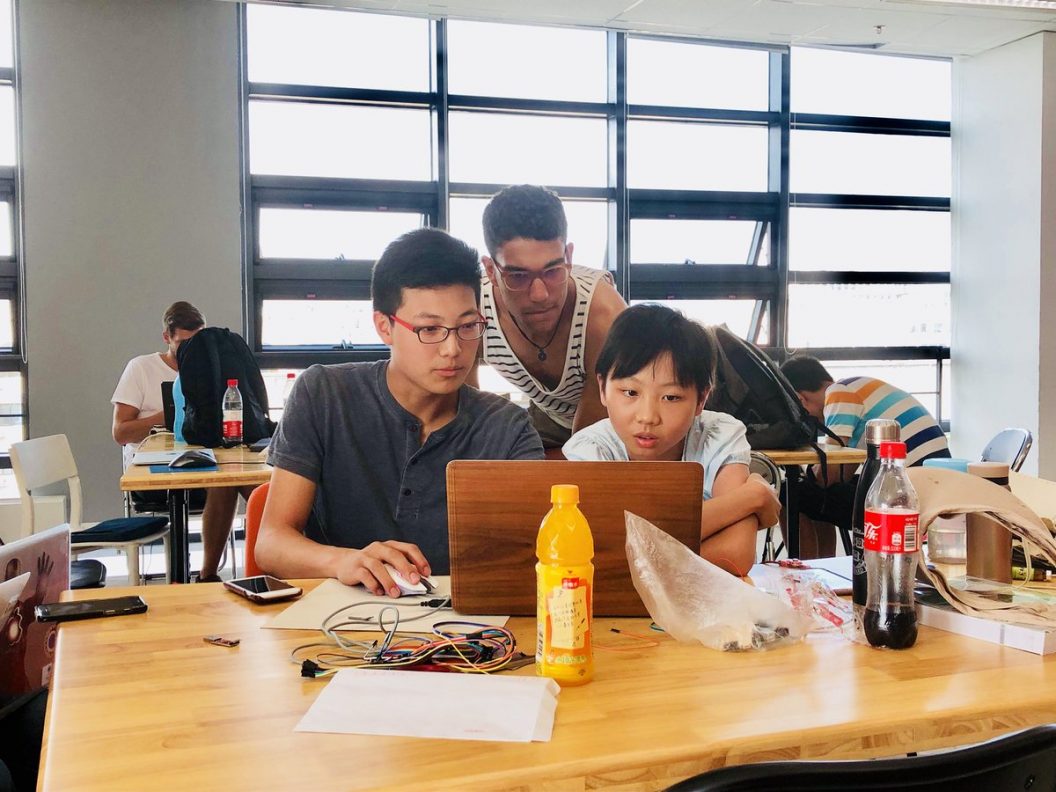Citizen Cyberlab in Geneva, Switzerland, is one of the eleven United Labs where students can work in projects tackling the UN Sustainable Development Goals (SDGs). During the summer, the Geneva-Tsinghua Initiative hosts selected teams from different parts of the globe at this Lab, where t hey connect with international organisations, learn about project management and how to use digital fabrication tools. They finally spend two weeks in Beijing and Shenzhen at Tsinghua’s University campuses in China, where they collaborate with local high school students while learning how to scale up their projects.
This year the summer school projects are related to SDG #3: ‘Ensure healthy lives and promote wellbeing for all at all ages’. In the spirit of not reinventing the wheel, the summer school recommends teams to use open licenses for software, educational materials and hardware, in addition to documenting their work in SDGinprogress, an open platform.
Two out of six teams are currently working on open hardware projects: ‘iDoctor’ –a device that helps people diagnosing diabetic retinopathy in areas without access to medical services– and ‘MotoSafe’ –a bracelet that allows motorcyclists to map locations of great occurrence of accidents, ‘black spots’, while alerting when near one-. Documentation about all the summer school’s projects can be found in SDGinprogress.
All the teams want their projects to be successful and achieve big impact, so questions around openness arise almost instantly. Which is a sustainable business model for open hardware? How to interact with other companies or institutions that are not into openness? How to achieve large scale while being open?

To learn more from real cases, the students received a visit from Erik Van Der Bij from CERN, who works on the synchronization team for the Large Hadron Collider (LHC). Under the direction of Javier Serrano, their team has been working since 2010 with open hardware, created the CERN Open Hardware License and the Open Hardware Repository –which hosts OHW developments related to physics-. Pioneering within their own institution, they built an “ecosystem” of companies around CERN working in the open.
Students also met Eric Pan, founder and CEO of SEEED Studio, a platform that has been connecting open hardware projects with manufacturing services in Shenzhen for the last 10 years. SEEED offers both design and manufacturing services in the international hardware capital.
Although the benefits of openness in the software arena are clear and business models have been widely adopted, in terms of hardware they still generate uncertainty within institutions and the general public. The topic will be widely discussed next October during the annual gathering of the Global Open Science Hardware (GOSH) community in Shenzhen, China, under the main theme: ‘Scaling hardware, growing community’.


